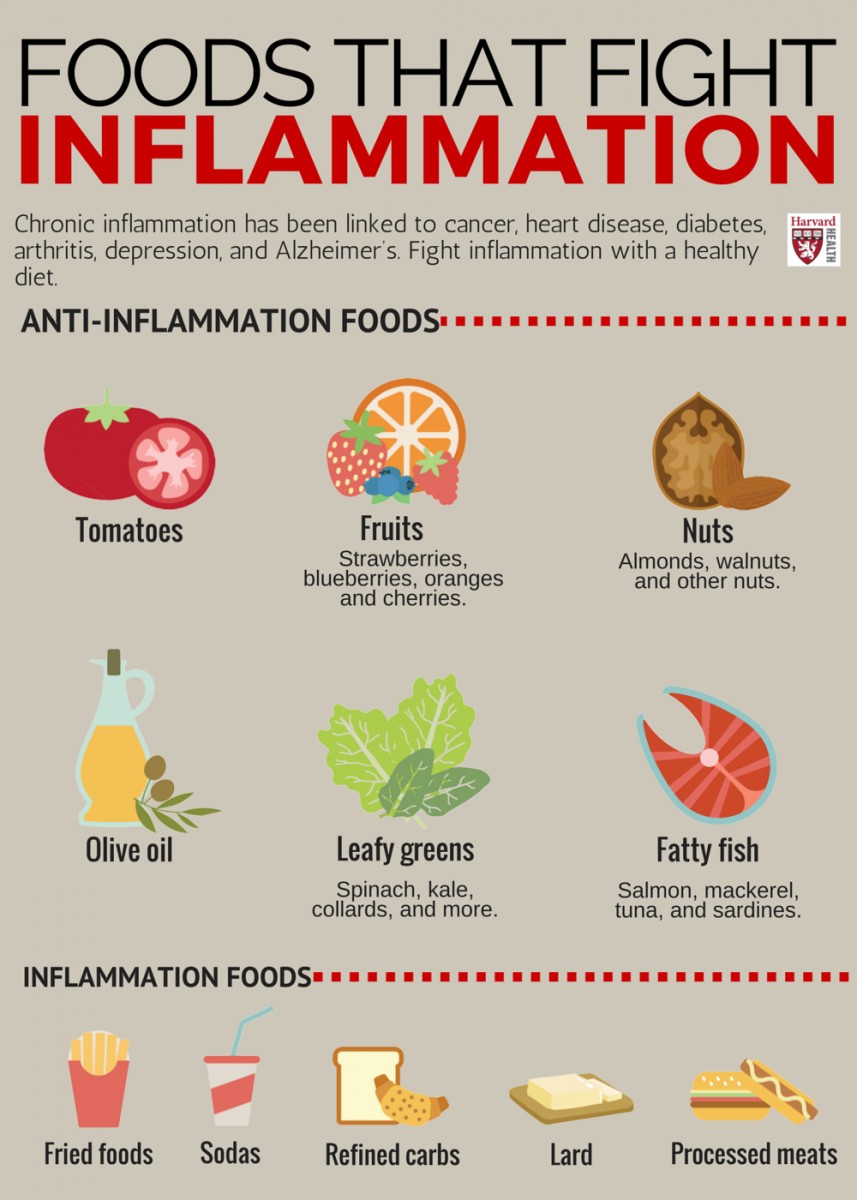Are Nuts Inflammatory Foods? Discover the surprising truth about nuts and their impact on inflammation, along with expert advice from FOODS.EDU.VN for making informed dietary choices. Navigate the world of healthful eating and discover anti-inflammatory compounds by learning more about nutritional science and inflammatory responses.
1. Understanding Inflammation and Diet
Inflammation is your body’s natural response to injury or infection, but chronic inflammation can lead to various health problems. Your diet plays a significant role in managing inflammation, with some foods promoting it and others helping to reduce it. Understanding how different foods impact inflammation is crucial for maintaining optimal health and well-being.
1.1. Acute vs. Chronic Inflammation
Acute inflammation is a short-term response to a specific trigger, such as a cut or infection. It’s characterized by redness, swelling, heat, and pain. Chronic inflammation, on the other hand, is a long-term, low-grade inflammation that can persist for months or even years. This type of inflammation is linked to several chronic diseases.
1.2. The Role of Diet in Inflammation
The foods you eat can significantly impact your body’s inflammatory response. Some foods contain compounds that promote inflammation, while others have anti-inflammatory properties. An anti-inflammatory diet focuses on consuming foods that help to reduce inflammation and avoid those that exacerbate it.
2. The Inflammatory Potential of Foods
Certain foods are known to promote inflammation in the body. Limiting or avoiding these foods can help to reduce chronic inflammation and improve overall health. According to Dr. Frank Hu, professor of nutrition and epidemiology at Harvard School of Public Health, food components can have anti-inflammatory effects.
2.1. Foods to Limit or Avoid
- Refined Carbohydrates: White bread, pastries, and other refined carbohydrates can contribute to inflammation.
- Fried Foods: French fries and other fried foods are often high in unhealthy fats that promote inflammation.
- Sugary Beverages: Soda and other sugar-sweetened beverages can increase inflammation levels in the body.
- Red and Processed Meats: Burgers, steaks, hot dogs, and sausages can contribute to inflammation due to their high saturated fat content and processing methods.
- Unhealthy Fats: Margarine, shortening, and lard are high in trans fats, which are known to promote inflammation.
2.2. Health Risks Associated with Inflammatory Foods
Consuming a diet high in inflammatory foods can increase the risk of chronic diseases such as type 2 diabetes, heart disease, and arthritis. These foods can also contribute to weight gain, which is itself a risk factor for inflammation.
3. Nuts: Nutritional Profile and Health Benefits
Nuts are a nutrient-dense food packed with healthy fats, protein, fiber, vitamins, and minerals. They have been associated with numerous health benefits, including a reduced risk of heart disease, diabetes, and certain types of cancer. But are nuts inflammatory foods?
3.1. Types of Nuts and Their Nutritional Value
| Nut | Calories (per ounce) | Fat (g) | Protein (g) | Fiber (g) | Key Nutrients |
|---|---|---|---|---|---|
| Almonds | 164 | 14.2 | 6 | 3.5 | Vitamin E, Magnesium, Calcium |
| Walnuts | 185 | 18.5 | 4.3 | 1.9 | Omega-3 Fatty Acids, Antioxidants |
| Cashews | 157 | 12.4 | 5.2 | 0.9 | Magnesium, Zinc, Iron |
| Brazil Nuts | 187 | 19 | 4.1 | 2.1 | Selenium |
| Macadamia | 204 | 21.5 | 2.2 | 2.4 | Monounsaturated Fats, Thiamin |


3.2. Health Benefits of Regular Nut Consumption
- Heart Health: Nuts are rich in monounsaturated and polyunsaturated fats, which can help lower LDL (bad) cholesterol and reduce the risk of heart disease.
- Diabetes Management: Nuts have a low glycemic index and can help improve blood sugar control in people with diabetes.
- Weight Management: Despite being high in calories, nuts can help with weight management due to their high protein and fiber content, which promotes satiety.
- Brain Health: Some nuts, like walnuts, are rich in omega-3 fatty acids, which are essential for brain health and cognitive function.
4. Are Nuts Inflammatory Foods? The Evidence
While some foods are known to promote inflammation, nuts generally have anti-inflammatory properties. Studies have shown that regular nut consumption is associated with reduced markers of inflammation in the body.
4.1. Research on Nuts and Inflammation
Several studies have investigated the effects of nut consumption on inflammation. A meta-analysis published in the American Journal of Clinical Nutrition found that nut consumption was associated with a significant reduction in inflammatory markers such as C-reactive protein (CRP) and interleukin-6 (IL-6).
Another study published in the Journal of the American College of Cardiology found that eating nuts at least twice a week was associated with a lower risk of cardiovascular disease, partly due to their anti-inflammatory effects.
4.2. Anti-Inflammatory Compounds in Nuts
Nuts contain several compounds that contribute to their anti-inflammatory properties, including:
- Healthy Fats: Monounsaturated and polyunsaturated fats, such as omega-3 fatty acids, can help reduce inflammation.
- Antioxidants: Nuts are rich in antioxidants like vitamin E, flavonoids, and phenolic acids, which can neutralize free radicals and protect against oxidative stress.
- Fiber: Fiber promotes gut health and can help reduce inflammation throughout the body.
- Magnesium: This mineral plays a role in regulating the inflammatory response and can help reduce inflammation.
5. Nuts That Fight Inflammation
While most nuts have anti-inflammatory properties, some are particularly beneficial for reducing inflammation.
5.1. Almonds
Almonds are rich in vitamin E, a powerful antioxidant that can help protect against inflammation. They also contain monounsaturated fats and fiber, which contribute to their anti-inflammatory effects.
5.2. Walnuts
Walnuts are an excellent source of omega-3 fatty acids, which are known for their anti-inflammatory properties. They also contain antioxidants and other beneficial compounds that can help reduce inflammation.
5.3. Other Anti-Inflammatory Nuts
- Brazil Nuts: High in selenium, an antioxidant that supports immune function and reduces inflammation.
- Macadamia Nuts: Rich in monounsaturated fats, which can help lower inflammation and improve heart health.
- Pecans: Contain antioxidants and minerals like magnesium and zinc, which have anti-inflammatory effects.
6. How to Incorporate Nuts into an Anti-Inflammatory Diet
Adding nuts to your diet is a simple way to boost your intake of anti-inflammatory compounds. Here are some tips for incorporating nuts into your daily meals:
6.1. Snacking
Nuts make a great snack on their own or mixed with dried fruit and seeds. Choose unsalted, raw, or dry-roasted nuts to avoid added sodium and unhealthy fats.
6.2. Meal Additions
- Salads: Add a sprinkle of chopped nuts to your salads for added crunch and nutrition.
- Oatmeal: Top your morning oatmeal with nuts and berries for a filling and nutritious breakfast.
- Yogurt: Mix nuts into yogurt for a protein-rich and satisfying snack or breakfast.
- Stir-Fries: Add nuts to your stir-fries for added flavor and texture.
- Baked Goods: Use nuts in your baking recipes to add healthy fats and nutrients.
6.3. Nut Butters
Nut butters like almond butter, peanut butter, and cashew butter are a versatile way to enjoy the benefits of nuts. Spread them on toast, add them to smoothies, or use them as a dip for fruits and vegetables.
7. The Importance of a Balanced Anti-Inflammatory Diet
While nuts can be a valuable addition to an anti-inflammatory diet, it’s important to focus on an overall healthy eating plan. A balanced diet rich in fruits, vegetables, whole grains, and lean protein can help reduce inflammation and improve overall health.
7.1. Foods That Reduce Inflammation
- Fruits: Berries, cherries, oranges, and other fruits are high in antioxidants and polyphenols, which can help reduce inflammation.
- Vegetables: Green leafy vegetables like spinach, kale, and collards are rich in vitamins, minerals, and antioxidants that fight inflammation.
- Olive Oil: A staple of the Mediterranean diet, olive oil is rich in monounsaturated fats and antioxidants that can help reduce inflammation.
- Fatty Fish: Salmon, mackerel, tuna, and sardines are excellent sources of omega-3 fatty acids, which have powerful anti-inflammatory properties.
- Whole Grains: Whole grains like brown rice, quinoa, and oats are high in fiber and nutrients that support gut health and reduce inflammation.
7.2. The Mediterranean Diet
The Mediterranean diet is an eating plan that closely follows the tenets of anti-inflammatory eating. It is high in fruits, vegetables, nuts, whole grains, fish, and healthy oils like olive oil. Studies have shown that the Mediterranean diet can help reduce inflammation and lower the risk of chronic diseases.
8. Considerations and Potential Concerns
While nuts are generally considered healthy, there are a few considerations and potential concerns to keep in mind.
8.1. Allergies
Nut allergies are common and can cause severe reactions. If you have a nut allergy, it’s important to avoid all nuts and nut products.
8.2. Calorie Content
Nuts are high in calories, so it’s important to consume them in moderation. Eating too many nuts can lead to weight gain.
8.3. Sodium Content
Some nuts are sold with added salt, which can contribute to high blood pressure. Choose unsalted nuts whenever possible.
8.4. Oxalates
Nuts contain oxalates, which can contribute to kidney stone formation in some people. If you are prone to kidney stones, talk to your doctor about limiting your oxalate intake.
9. Expert Opinions and Recommendations
Experts agree that nuts can be a valuable addition to a healthy, anti-inflammatory diet. Dr. Howard LeWine, Chief Medical Editor at Harvard Health Publishing, emphasizes the importance of choosing the right foods to combat inflammation. Including nuts in your diet, along with other anti-inflammatory foods, can help reduce your risk of illness and improve your overall health.
10. FOODS.EDU.VN: Your Guide to Anti-Inflammatory Eating
At FOODS.EDU.VN, we understand the importance of making informed dietary choices for your health. Our website offers a wealth of information on anti-inflammatory foods, recipes, and meal plans to help you reduce inflammation and improve your well-being.
10.1. Explore Anti-Inflammatory Recipes
Discover delicious and easy-to-follow recipes that incorporate nuts and other anti-inflammatory ingredients. From salads and smoothies to main courses and desserts, we have something for everyone.
10.2. Learn About Anti-Inflammatory Foods
Expand your knowledge of anti-inflammatory foods and their health benefits. Our articles and guides provide in-depth information on the nutritional properties of various foods and how they can help reduce inflammation.
10.3. Create a Personalized Meal Plan
Use our tools and resources to create a personalized anti-inflammatory meal plan that meets your individual needs and preferences. Whether you’re looking to lose weight, manage a chronic condition, or simply improve your overall health, we can help you design a diet that works for you.
FAQ: Nuts and Inflammation
-
Are all nuts anti-inflammatory?
Most nuts have anti-inflammatory properties due to their healthy fats, antioxidants, and fiber content. However, some nuts, like walnuts and almonds, are particularly beneficial.
-
Can eating too many nuts cause inflammation?
While nuts are generally anti-inflammatory, consuming them in excess can lead to weight gain, which is a risk factor for inflammation. It’s important to consume nuts in moderation as part of a balanced diet.
-
Are salted nuts inflammatory?
The salt in salted nuts can contribute to inflammation if consumed in excess. It’s best to choose unsalted nuts to avoid added sodium.
-
Can people with nut allergies benefit from anti-inflammatory foods?
Yes, people with nut allergies can still benefit from an anti-inflammatory diet by focusing on other anti-inflammatory foods like fruits, vegetables, fatty fish, and olive oil.
-
How do nuts compare to other anti-inflammatory foods?
Nuts are a great source of healthy fats, protein, and fiber, but they should be consumed as part of a balanced diet that includes other anti-inflammatory foods like fruits, vegetables, and fatty fish.
-
What is the recommended daily intake of nuts for an anti-inflammatory diet?
A handful (about 1 ounce) of nuts per day is generally recommended as part of a healthy, anti-inflammatory diet.
-
Do nut butters have the same anti-inflammatory benefits as whole nuts?
Yes, nut butters can provide similar anti-inflammatory benefits as whole nuts, as long as they are made from natural ingredients without added sugar or unhealthy fats.
-
Can nuts help reduce inflammation in people with arthritis?
Studies have shown that nuts can help reduce inflammation in people with arthritis due to their anti-inflammatory properties.
-
Are there any nuts that are more inflammatory than others?
Generally, all nuts have anti-inflammatory properties. However, nuts that are heavily processed or coated with sugar and unhealthy fats may not be as beneficial.
-
Where can I find more information about anti-inflammatory diets and recipes?
You can find a wealth of information about anti-inflammatory diets and recipes on FOODS.EDU.VN. We offer articles, guides, and recipes to help you make informed dietary choices and improve your health.
Conclusion
So, are nuts inflammatory foods? The evidence suggests that they are not. Nuts, when consumed in moderation as part of a balanced diet, can actually help reduce inflammation and improve overall health. Their rich nutrient profile, including healthy fats, antioxidants, and fiber, contributes to their anti-inflammatory properties. To learn more about incorporating nuts and other anti-inflammatory foods into your diet, visit FOODS.EDU.VN.
Ready to transform your health with the power of anti-inflammatory eating? Visit FOODS.EDU.VN today and unlock a world of delicious recipes, expert advice, and personalized meal plans. Don’t wait, start your journey to a healthier, happier you now! Contact us at 1946 Campus Dr, Hyde Park, NY 12538, United States or reach out via Whatsapp at +1 845-452-9600. Discover more at foods.edu.vn.
